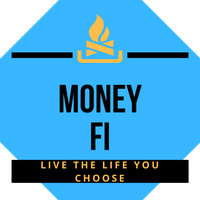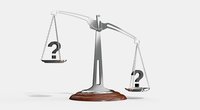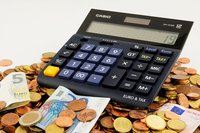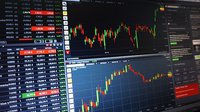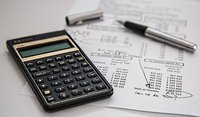Money FI Blog
Musings on financial independence, investing, FIRE and life.
by Brendon @ Money FIWant to break free from the 9–5? Learning to code can open doors to high-paying remote jobs, freelance work, and tech entrepreneurship. Here we explore how programming can help you achieve financial independence.
In this post we outline the top ways to reach financial independence.
We cover everything from investing in the stock market through to real estate and side hustles. Incorporate these strategies to ensure you reach FI as soon as possible while leveraging your existing skills and interests.
Reaching financial independence takes time and discipline. How long will it take you to get there?
In this post we explain how to calculate your FI timeline along with a few short comings of this approach.
Money FI provides the ability to map out your journey to financial independence while taking into account future life events.
Simply using 25x your annual expenses as a rough guide for determining if you've reached financial independence is a good starting point. But how long will it take to reach that point if your finances are constantly changing over time?
Manual calculations and spreadsheets can only take you so far. Money FI aims to take you the rest of the way.
The monthly roundup highlights some of the most interesting and informative articles published over the last month within the financial independence and investing communities.
What if we were to start investing right as the stock market starts to crash and enter a bear market?
In this post we run the numbers to find out exactly how our investments would perform if we were unlucky enough to start at the worst possible time.
The monthly roundup highlights some of the most interesting and informative articles published over the last month within the financial independence and investing communities.
Is it better to invest a larger amount of money into the stock market in one go or to split it into smaller investments over a period of time.
This post runs the numbers over 26 years worth of stock market activity to determine the optimal investment strategy between lump sum and dollar cost averaging.
The monthly roundup highlights some of the most interesting and informative articles published over the last month within the financial independence and investing communities.
Tracking your savings rate is a major corner stone metric when it comes to the financial independence journey.
Savings rate is simply a percentage calculated by taking the amount you save each month and dividing it by your income.
Given how complex defining income can be, is there perhaps a simpler, more accurate and ultimately more useful way to represent how much we're squirrelling away for FI?
What's more impactful on your financial future between lowering expenses or receiving a financial windfall?
Most people with bad money habits and a mountain of debt live in constant hope of receiving a financial windfall to solve all their problems. But what if there was another option to secure your financial future that you could start doing right away?
Lowering your cost of living might not sound sexy, but take a look at these numbers and you might be surprised at how they can change your future.
When investing for retirement or financial independence, it's tempting to get caught up in stock picking. We all want to get the best returns possible on our money and find that hidden stock that's destined to increase one hundred fold.
But is picking winning stocks the only way to ensure a comfortable retirement?
Insurance is a grudge purchase which we tend to set and forget. We push it to the back of our mind, diligently pay our premiums and hope that we didn't miss any fine print if we ever need to claim one day.
As our lifestyle changes, it's important to review our insurance so that we aren't under or over insured. As much as we all hate paying those premiums, it's a harder pill to swallow finding out when we claim that we're not as well covered as we thought.
Lifestyle creep is what keeps high income earners living pay check to pay check, unable to step out of the rat race and always feeling like they never have enough money.
Instead of buying freedom, impressive salaries often increase a feeling of being trapped and always wanting more.
A few months ago thrifty-wife and I finished paying off our mortgage and as a result found ourselves with some extra money every month.
This triggered some research into whether we wanted to increase our existing monthly ETF investments, purchase a 2nd property to rent out or begin investing in a REIT.
By purchasing under our means and analyzing our financial situation, we paid off our home in 4 years so we could be debt free.
Our focus is now on making our money grow and work for us rather than paying off multi-decade debt.
How do you decide if something is cheap or expensive? When does something become a worthwhile purchase even if the upfront cost is high? How do we compare alternatives?
In this post I look at the concept of cost per use which can help us make more informed purchases and save money over the long term.
How much does that daily cup of coffee or those weekly meals out cost over time? What if you cut out or reduce a few small recurring expenses and invested that money instead?
In this post I investigate the true cost of seemingly small recurring expenses and habits over time and the effect they have on our future net worth.
If you're new to the financial independence movement, you're likely to hear a lot of terminology thrown around. In this post I give a quick explanation of some of the commonly used jargon you're likely to come across.
My wife and I have just had our first child and among the million things going through my mind is our journey towards financial independence.
In this post I write about the arrival of our son and my plan to ensure he learns good money habits from an early age.
Financial independence in my mind is akin to freedom. It's about having choices, owning your time and having the freedom to do what you're passionate about.
In this article I talk about what financial independence is and what I feel it can bring to your life.



